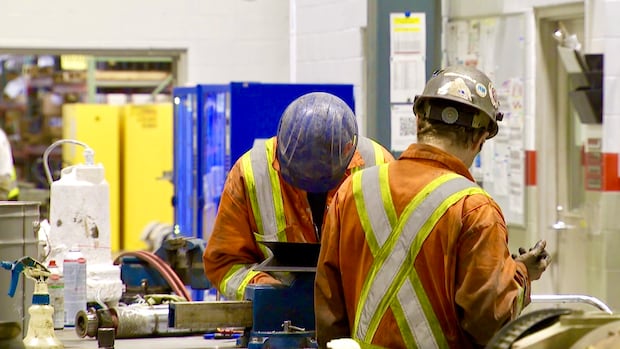Top Stories
Federal Refugee Program Faces Surging Wait Times, Businesses Struggle

URGENT UPDATE: The federal Economic Mobility Pathways Pilot (EMPP) is experiencing alarming wait times, now reaching an unprecedented 54 months for refugee applications, a stark contrast to the six months initially promised. This delay is leaving skilled refugees in limbo, jeopardizing their safety and the ability of Canadian businesses to fill critical positions.
Canadian employers are facing a severe labor shortage as they await the arrival of skilled refugees who have job offers but cannot get the necessary approvals. According to Dana Wagner, managing director of TalentLift Canada, businesses are reporting production cuts, project cancellations, and lost revenue due to these drawn-out processing times. “It’s extremely frustrating knowing the value of this program and the potential it holds,” Wagner stated.
Since its launch in 2018, the EMPP has facilitated the entry of over 1,200 refugees into Canada, granting them permanent residency alongside their families. However, officials now confirm that the processing backlog has ballooned, with 80 percent of complete applications taking on average 17 months to process.
The situation is dire for many refugees who face risks such as arrest, eviction, and hunger while waiting for approval. “These are really extreme situations playing out while people have a job offer in Canada waiting for them,” Wagner emphasized.
The growing delays contradict Ottawa’s earlier commitments to expedite the hiring of skilled workers from refugee populations. Finance Minister François-Philippe Champagne recently acknowledged that the government is adjusting immigration targets to more sustainable levels, but the impact of these changes is already being felt. “Canadians understand that we had reached our capacity — or sometimes even exceeded our capacity — to welcome newcomers,” he said.
The challenges of the EMPP come at a time when the global number of displaced individuals is rising, further highlighting the urgent need for effective solutions. The program was designed to allow Canadian employers facing skill shortages to tap into refugee talent pools, yet the current situation is thwarting these efforts.
As the federal government works to regain control over immigration processing times, observers are left wondering how many more skilled workers will be lost to delays. “Canada is no longer treating this applicant group like the skilled workers they are,” Wagner lamented.
Employers and advocates alike are calling for immediate action to address these delays. The message is clear: the future of many skilled refugees and the potential growth of Canadian businesses hang in the balance.
As this situation develops, stakeholders are watching closely for any changes in processing timelines or additional support for affected refugees. What happens next will be critical in determining the fate of countless skilled individuals hoping to contribute to Canada’s economy.
Stay tuned for more updates on this pressing issue as the situation unfolds.
-

 Politics2 weeks ago
Politics2 weeks agoSecwepemc First Nation Seeks Aboriginal Title Over Kamloops Area
-

 World4 months ago
World4 months agoScientists Unearth Ancient Antarctic Ice to Unlock Climate Secrets
-

 Entertainment4 months ago
Entertainment4 months agoTrump and McCormick to Announce $70 Billion Energy Investments
-

 Lifestyle4 months ago
Lifestyle4 months agoTransLink Launches Food Truck Program to Boost Revenue in Vancouver
-

 Science4 months ago
Science4 months agoFour Astronauts Return to Earth After International Space Station Mission
-

 Technology3 months ago
Technology3 months agoApple Notes Enhances Functionality with Markdown Support in macOS 26
-

 Top Stories1 month ago
Top Stories1 month agoUrgent Update: Fatal Crash on Highway 99 Claims Life of Pitt Meadows Man
-

 Sports4 months ago
Sports4 months agoSearch Underway for Missing Hunter Amid Hokkaido Bear Emergency
-

 Politics3 months ago
Politics3 months agoUkrainian Tennis Star Elina Svitolina Faces Death Threats Online
-

 Politics4 months ago
Politics4 months agoCarney Engages First Nations Leaders at Development Law Summit
-

 Technology4 months ago
Technology4 months agoFrosthaven Launches Early Access on July 31, 2025
-

 Top Stories3 weeks ago
Top Stories3 weeks agoFamily Remembers Beverley Rowbotham 25 Years After Murder



















